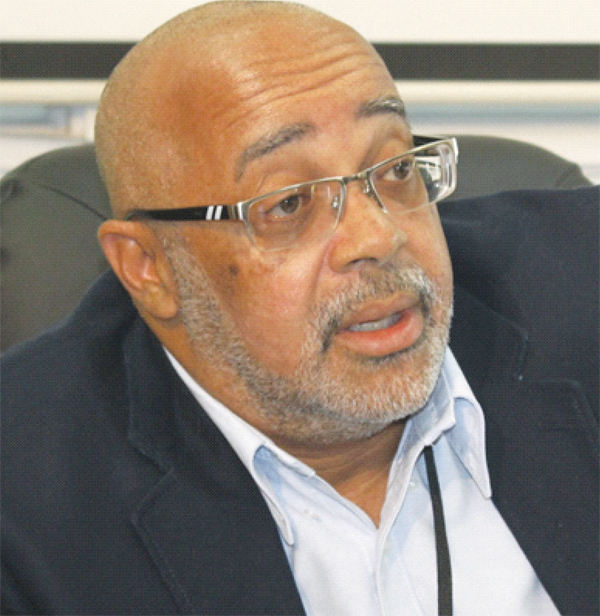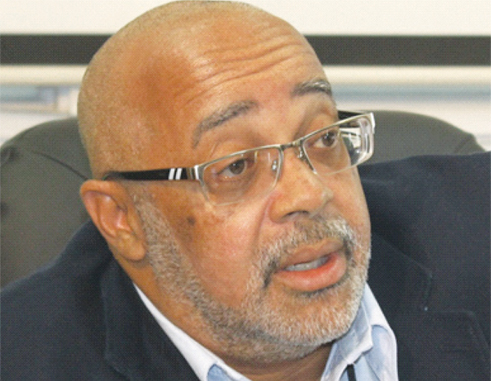
DIRECTOR General of the Organization of Eastern Caribbean States (OECS) Commission, Dr.Didacus Jules yesterday called on governments of the subregion to move fast to strengthen their institutional capacity to act more strategically and decisively in the public interest in energy, broadband and telecommunications, food security, poverty elimination and other areas.
“Institutional capacity is one of the less recognized conditions for successful and sustained development and building public and private institutions,” Jules said.
Jules call for decisive action on broadband and telecommunications come at a time when the OECS is going through some challenges with broadband and telecommunication operators within its borders.
Flow at the start of this month raised its broadband fees causing an outcry through the sub-region. Now there is word that Cable & Wireless, the parent company of LIME has sold over to Liberty Global, a telecommunications company that operates mainly in Europe.
Earlier this year, Cable & Wireless brought over Columbus Communications, which operated the Flow brand in the OECS and wider Caribbean.
Jules who at the time was speaking at the opening ceremony of the 62nd Meeting of the OECS Authority in Dominica also proposed that that country be the precursor of climatic events to come and as the exempla of what building resistance requires.
Jules no doubt was referring to the Nature Isle’s brush with Tropical Storm Erika which damaged much of its infrastructure last August.
The Director General said that the OECS Commission was challenged to exercise greater responsiveness to the particular situations facing of individual states and extracting lessons applicable to the collective of members in ways that add greater value, create best practice or avoid the duplication of trial and error.
“A good example of this is our engagement with Dominica in addressing the setbacks of Tropical Storm Erika. On the assumption supported by the science of climate change that such devastating events will occur more frequently or unexpectedly we are proposing to treat Dominica as a precursor of climatic events to come and as the exemplar of what building resistance requires. It is clear that our collective future requires a more integrated approach to land use and coastal zone management, zoning, constructive codes, water management and so much more,” Jules said.
He called on the nine member states of the OECS to approach the 2030 agenda for sustainable development with an optimism of will.
“The 2030 agenda for sustainable development promises to be a new framework for addressing issues of poverty, global change and achieving prosperity for all. And notwithstanding the pessimism in which these grand declarations are viewed we should approach them with an optimism of will,” Jules said.
He noted that the contextual changes challenge the Commission to re-conceptualize the OECS integration project.
The first challenge is to need to reconcile the national imperatives with regional imperatives. It is widely accepted that all politics is local but not all solutions can be purely local,” Jules said.
Another challenge to the Commission that Jules referred to is that of giving voice to the needs of non-independent member states.
“All member states, whether full or associated, must find value in their membership. We need to speak collectively to things which impact the viability of any member state. We must be the advocate for the just causes,” Jules said.
















I just heard and I want you to confirm that; Is it true that the
E.C. Currency, ( the $) is about to be devalued?
If true, then it will cost more to travel, buy imported goods
and purchase foreign currency etc, etc. (true or false)